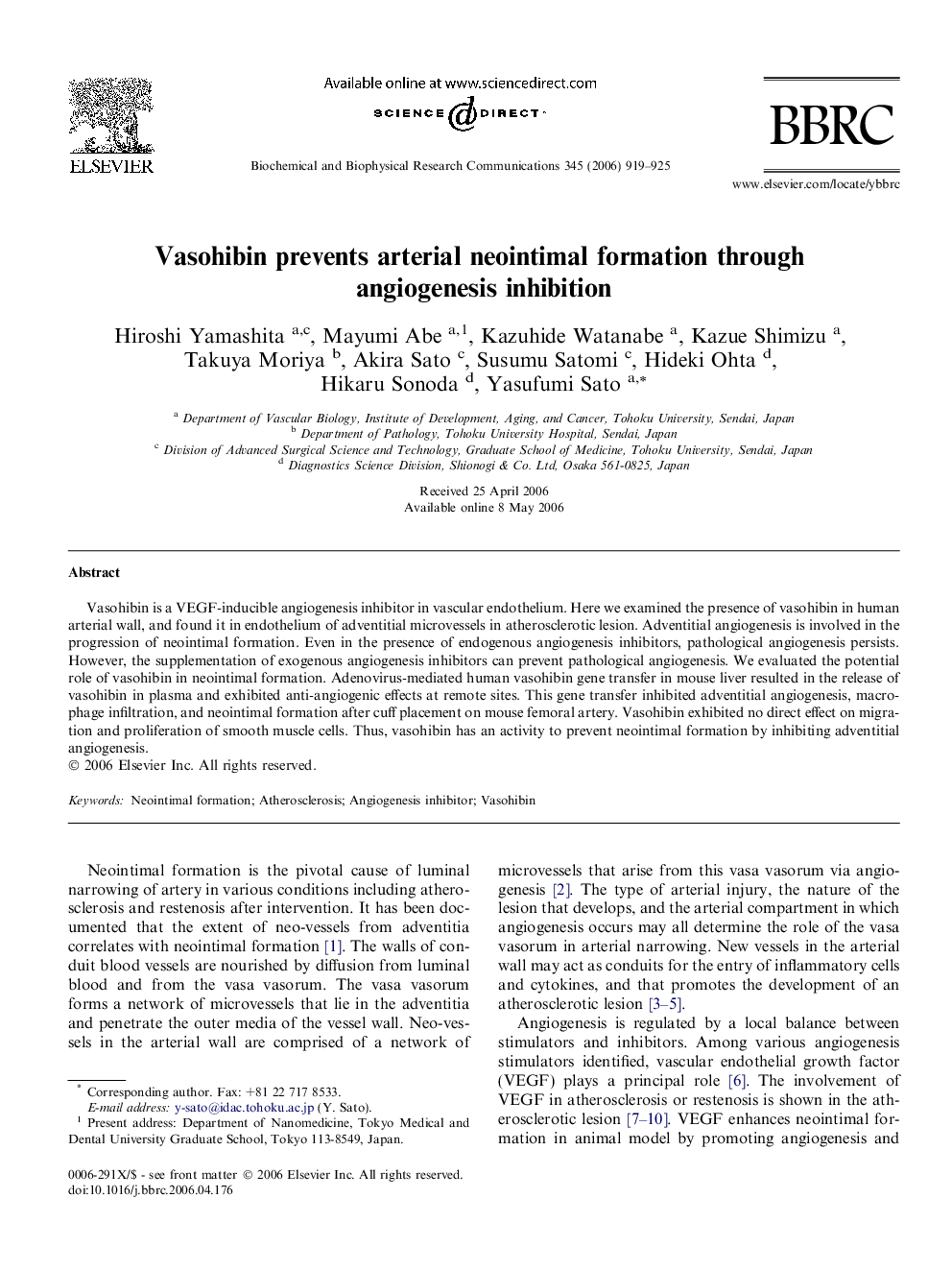| Article ID | Journal | Published Year | Pages | File Type |
|---|---|---|---|---|
| 1939682 | Biochemical and Biophysical Research Communications | 2006 | 7 Pages |
Vasohibin is a VEGF-inducible angiogenesis inhibitor in vascular endothelium. Here we examined the presence of vasohibin in human arterial wall, and found it in endothelium of adventitial microvessels in atherosclerotic lesion. Adventitial angiogenesis is involved in the progression of neointimal formation. Even in the presence of endogenous angiogenesis inhibitors, pathological angiogenesis persists. However, the supplementation of exogenous angiogenesis inhibitors can prevent pathological angiogenesis. We evaluated the potential role of vasohibin in neointimal formation. Adenovirus-mediated human vasohibin gene transfer in mouse liver resulted in the release of vasohibin in plasma and exhibited anti-angiogenic effects at remote sites. This gene transfer inhibited adventitial angiogenesis, macrophage infiltration, and neointimal formation after cuff placement on mouse femoral artery. Vasohibin exhibited no direct effect on migration and proliferation of smooth muscle cells. Thus, vasohibin has an activity to prevent neointimal formation by inhibiting adventitial angiogenesis.
